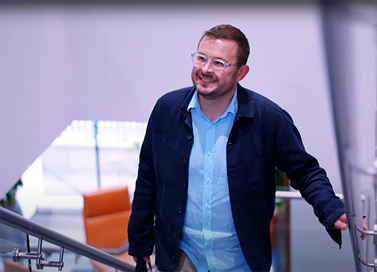Intellectual Disability Psychiatry in Wales

Croeso, Welcome.
You've reached the webpage of the Faculty of Intellectual Disability Psychiatry in Wales.
On this page you'll find information on Intellectual Disability Psychiatry; useful resources from the College and Health Education and Improvement Wales, and how the Faculty of Intellectual Disability in Wales can support you.
If you are interested in training and specialising in Intellectual Disability Psychiatry, and need any further information, please get in touch.
Intellectual disability psychiatry, also known as learning disability psychiatry, is a sub-specialty of psychiatry that trainees can consider specialising in for the final 3 years of their psychiatry training.
Intellectual disability (ID) psychiatrists work alongside adults with intellectual disability to diagnose and treat mental illnesses, however their work can also be much wider and more varied than treating mental disorders alone. This is often because if patients are unable to articulate their thoughts and feelings easily, wider differential diagnoses may also need to be considered. This could include the non-specific presentation of an underlying physical health condition or numerous social factors.
Formulation skills using the bio-psycho-social model are embedded within ID psychiatry practice, meaning that clinicians will often work in muti-professional teams and draw on the expertise of wider professional groups (such as nursing, SALT, OT, psychology, dieticians, behavioural specialists and physiotherapists). The role also involves liaising with families and external agencies such as social workers, care providers, GPs and the criminal justice system, and so good organisational and communication skills are essential. Most ID psychiatrists work in the community and review patients in clinics or at home, however there are specialist inpatient jobs also available. Additionally, Wales is the first place in the UK to pilot a ID Liaison Consultant working in the general hospitals.
ID psychiatrists work with adults across the life-span meaning that the range of psychopathology seen can be very broad and can include neurodevelopmental disorders present since childhood, such as autism and ADHD, as well as neurodegenerative conditions typically seen later in life, such as dementia. People with ID also have a higher prevalence of common mental illnesses such as depression and anxiety compared with the general population. ID psychiatrists also have a role in managing epilepsy, particularly for patients who experience behavioural changes in response to either seizure activity or medication side effects.
The ID Faculty in Wales is made up of the members, who work as ID psychiatrists across Wales. The majority of the members are Consultants. The faculty meet virtually twice a year. A recruitment working group was also set up in 2021 to tackle national recruitment concerns into the speciality.
One of the faculty’s recent successes has been to get an agreement in place between all of the health boards in Wales regarding guidelines for the safe transition of psychiatric care for patients with ID moving between health boards and this work was completed in September 2022.

The Chair of the RCPsych Wales ID Faculty also attends national RCPsych ID executive college meetings and sits on the RCPsych Wales Devolved Council and on the LD Ministerial Advisory Group. The current Chair is Dr Harriet Slater (2020- present).
The role of Vice-Chair is currently vacant, and we are inviting expressions of interest in the role. Please contact the Wales office by Friday 10 November should you be interested in the role.
Many thanks to Dr Lance Watkins who extended his term in office from 2019-2023.
 Great stuff! Wales is a highly rewarding place to work and train.
Great stuff! Wales is a highly rewarding place to work and train.
Find out more on the Health Education and Improvement Wales (HEIW) website
Our training programme director, Dr Andrew Isaac, would also be very happy to hear from you and can answer any questions that you may have about higher training in intellectual disability psychiatry.
Supporting you in training
Wales is a highly rewarding place to work and train.
Please look at the HEIW website to find out about the supporting given to trainees in Wales.
What our members say about working in ID Psychiatry
‘People with ID are the most rewarding group of people I have ever worked with. I have worked closely with people with ID, their families and carers- there are so many opportunities for holistic practice’
Dr Cath Bright, Consultant in Aneurin Bevan UHB
‘Working in LD psychiatry gives the opportunity to work in a nurturing environment alongside like-minded individuals to improve the quality of life and to advocate for a marginalised group of people, who are so rewarding to work with’
anon
‘Working in ID psychiatry encompasses holistic medicine- physical health (epilepsy dementia), mental health and psychosocial factors, there’s great MDT working, a good support network of colleagues and I really like my patients’
Dr Catherine Walton, ID Consultant, Swansea Bay UHB
‘Working with them (patients with ID) enables me to see their strength and also help them harness this strength to function to the best of their capacities’
Dr Victoria Adeyeye, LAS Doctor, Swansea Bay UHB








.tmb-thumblg.jpg?Culture=en&sfvrsn=6d8d5309_1)
